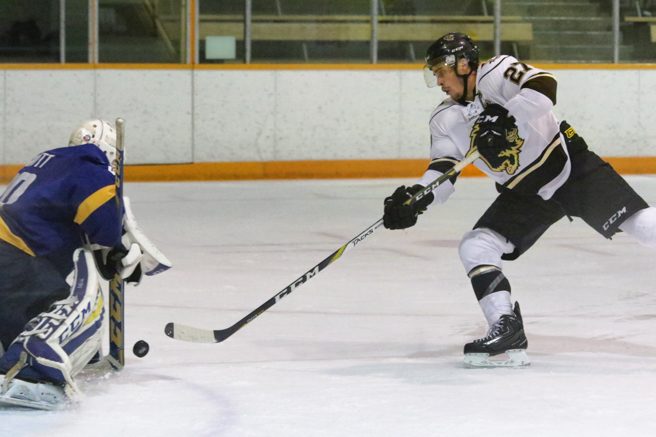While Canada may not be able to recapture the magic of the American 1980 “Miracle on Ice,” it may be time for U SPORTS and Hockey Canada to start believing in miracles.
During the 2017 NHL playoffs, the NHL made the fateful announcement that there would be no participation by the league in the upcoming South Korean Winter Olympics. This brought on a wave of continued condemnation from fans and players. Additionally, some NHL owners are in favour of their players participating in the 2018 Olympics.
Despite the backlash, the NHL forged ahead. Even following news that a secondary schedule had been made to include an Olympic break, the decision stands to this day. Hockey Canada, USA Hockey, and the other major national sports programs that rely on NHL players for participation have to seek other avenues.
Numerous international and invitational tournaments have featured ad hoc national squads, as International Ice Hockey Federation members now lacking NHL talent try to pull together a competitive roster comprised mainly of talent from Russia’s premier pro league, the Kontinental Hockey League (KHL). However, with recent reports the KHL will boycott the Olympics – due to the fallout of the Russian doping scandal – even these plans may be on their way out.
In this time of turmoil, it may be best for Hockey Canada and USA Hockey to return to their roots in order to field a competitive international squad.
Prior to the 1988 Olympics, participation was limited to amateur athletes, with the last eight Winter Olympic Games allowing for professional participation. Now, with the loss of NHL players, and potentially KHL players, Hockey Canada has a unique opportunity to help grow the game, while shining a spotlight on some of their largely ignored university talent.
With the presence of top tier junior hockey through the Canadian Hockey League (CHL) – which includes the Western Hockey League, Ontario Hockey League, and the Quebec Major Junior Hockey League – as well as the ever present Junior A and Junior B ranks, collegiate hockey has taken an unnecessary back seat in Canada.
The road to the NHL for any player growing up in Canada seems paved by a path through the CHL or in some cases the NCAA. This does not necessarily have to be the case.
Derek Ryan, of the Carolina Hurricanes, is one of the most high-profile examples of a former U SPORTS talent now plying his trade in the professional ranks. A graduate of the powerhouse University of Alberta Golden Bears program, Ryan has recorded 37 points – 16 goals and 21 assists – through 87 NHL games.
Like Alberta, the University of New Brunswick has proven to be a professional-talent generating machine. Francis Beauvillier played with the Varsity Reds from 2014 to 2017, recording 54 points – 26 goals and 28 assists – in 74 games before signing with the Manitoba Moose of the American Hockey League.
While the University of Manitoba has not produced an NHL player since Stu Grimson began his NHL career 1988, there is professional experience present.
After red-shirting the last season, Michael St. Croix is off to a great start with the Bisons, notching three goals and eight assists through 10 games. The Winnipeg-born forward is a former New York Rangers draft pick, and spent three years playing professional hockey in their farm system. In his final year he recorded 11 goals and 29 assists in 66 games for the Greenville Swamp Rabbits.
Jordon Cooke, the star University of Saskatchewan Huskies goalie, was named to Canada’s 2017 Spengler Cup roster. While he did not see any action, he was able to learn from the pros and train with world class coaches.
U SPORTS men’s hockey represents an untapped gold mine of talent: Ryan, Beauvillier, St. Croix, and Cooke show it is not just a final stop for overaged junior players.
The lack of NHL – and maybe KHL – talent at the upcoming Olympics represents a great opportunity for Hockey Canada and U SPORTS to come together in a meaningful way. By constructing a U SPORTS all-star team and taking them to PyeongChang, Hockey Canada can help build the profile of Canadian collegiate hockey to become a destination for players.
For U SPORTS, more eyes on their talent could lead to more interest, more sponsorships, and further growth of their brand. Furthermore, U SPORTS players will have the chance to train and play for world-class coaches and against top talent.
U SPORTS already compiles an all-star team to play a two game exhibition series against Canada’s World Junior squad in December each year. Why not send them to South Korea this year?

